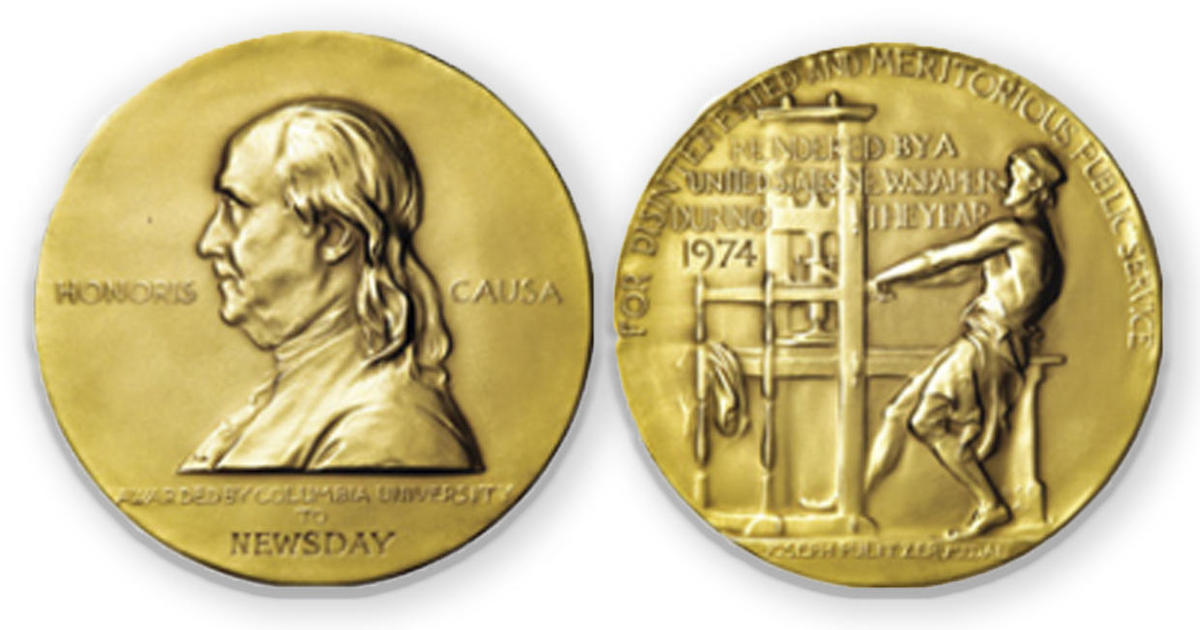
NEW YORK — The New York Times and The New Yorker won the Pulitzer Prize for public service Monday for breaking the Harvey Weinstein scandal with reporting that galvanized the #MeToo movement and set off a national reckoning over sexual misconduct in the workplace.
The Times and The Washington Post took the national reporting award for their coverage of the investigation into Russian meddling in the 2016 U.S. presidential race and contacts between President Donald Trump’s campaign and Russian officials.
The Press Democrat of Santa Rosa, California, received the breaking news reporting award for coverage of the wildfires that swept through California wine country last fall, killing 44 people and destroying thousands of homes.
The Washington Post also won the investigative reporting prize for revealing allegations of sexual misconduct against Senate candidate Roy Moore of Alabama decades ago. The Republican former judge denied the accusations, but they factored heavily in the special election that Democrat Doug Jones went on to win.
The Pulitzers, American journalism’s most prestigious awards, reflected a year of unrelenting news and unprecedented challenges for U.S. media, as Trump repeatedly branded reporting “fake news” and called journalists “the enemy of the people.”
In announcing the prizes, Pulitzer administrator Dana Canedy said the winners “uphold the highest purpose of a free and independent press, even in the most trying of times.”
“Their work is real news of the highest order, executed nobly, as journalism was always intended, without fear or favor,” she said.
A string of stories in The Times and The Washington Post shined a light on connections between Russian officials and Trump’s 2016 campaign, ties now under investigation by special counsel Robert Mueller. The president has branded the investigation a “witch hunt.”
The Russia probe stories were “deeply sourced, relentlessly reported coverage in the public interest that dramatically improved the public’s understanding,” Canedy said.
In stories that appeared within days of each other in October, The Times and The New Yorker reported that movie mogul Weinstein faced allegations of sexual harassment and assault from a multitude of women in Hollywood going back decades and had secretly paid settlements to keep the claims from becoming public.
Canedy said the Times’ Jodi Kantor and Megan Twohey and The New Yorker’s Ronan Farrow produced “explosive, impactful journalism that exposed wealthy and powerful sexual predators.”
The stories led to Weinstein’s ouster from the studio he co-founded, and he now faces criminal investigations in New York and Los Angeles. He has apologized for “the way I’ve behaved with colleagues in the past” but denied any non-consensual sexual contact.
The stories’ impact soon spread beyond Weinstein to allegations against other prominent men in entertainment, politics and elsewhere, toppling such figures as “Today” show host Matt Lauer, actor Kevin Spacey, newsman Charlie Rose and Sen. Al Franken.
Men and women, famous or not, have spoken about their own experiences of sexual harassment and assault in what has become known as the #MeToo movement.
Twohey and Kantor, who is also a CBS News contributor, reflected on the impact of their reporting in an appearance on “CBS This Morning” in December.
“For the first time, I think, maybe ever, you have a culture in which women now feel comfortable stepping forward and making allegations, whereas in the past they felt like they would be the ones to suffer consequences to their careers and worse if they spoke out,” Twohey said.
Kantor noted that few people initially believed their efforts to break the story would result in such far-reaching change.
“Some people said it’s an open secret. Everybody in Hollywood has known for a long time. They told us that we were naive and idealistic, that we would publish our little story and life would go on,” she said about what went on to become one of the defining social issues of its time.
Farrow told CBS News’ “Sunday Morning” that his exposé on Weinstein, published the same week as The Times’, came at just the right time.
“This was the first point in history when women could look at the allegations against Bill Cosby, the allegations against Roger Ailes, the allegations against Bill O’Reilly, and see for the first time, ‘OK, as scary as this is, there’s a precedent — I can come forward and I’ll be heard,'” he said.
The Pulitzers were announced at Columbia University, which administers the prizes. This is the 102nd year of the contest, established by newspaper publisher Joseph Pulitzer.
Winners of the public service award receive a gold medal; the other awards carry a prize of $15,000 each.

